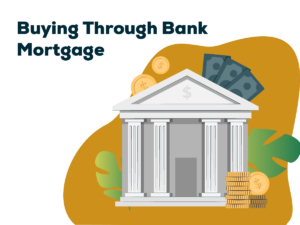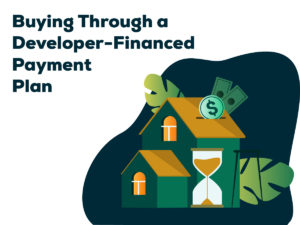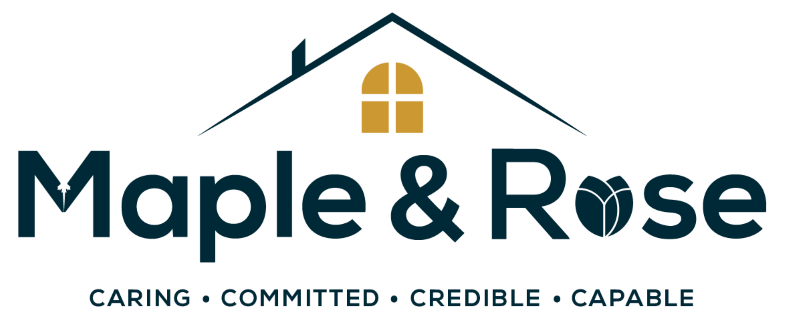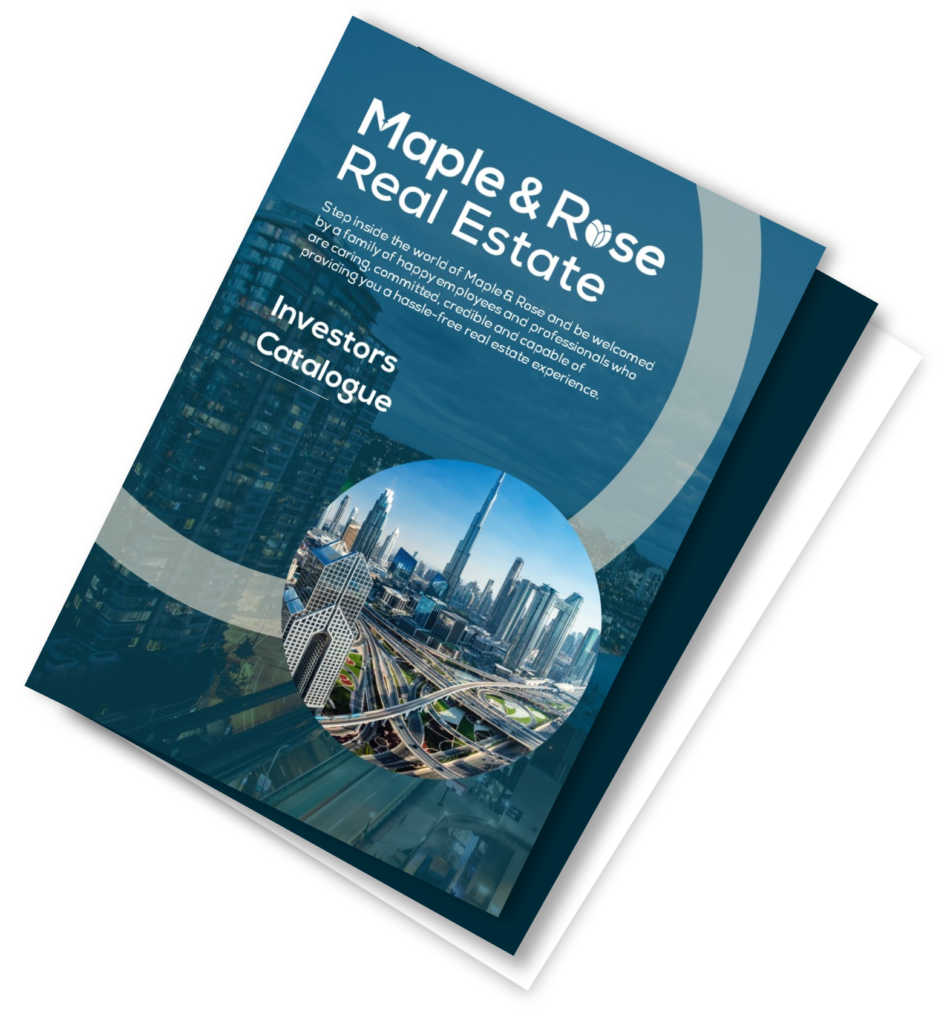Buying property in Dubai or the UAE is possible, accessible, and manageable for all – this means in addition to the locals, foreign nationals and expats can also fulfill their real estate investment goals here. With the availability of several financing options, UAE is truly the foreign investor’s delight. The two most common financial plans to purchase property in Dubai are bank mortgage and developer financing plans.
Financing property purchase through a bank mortgage has been the oldest and most common pathway. Recently, however, developer financing has become quite popular in Dubai. Alongside it mixed opinions of investors of which pathway is better – mortgage or developer funding.
The answer to the above may not be simple and direct as the context must be analyzed on many levels and layers. In addition, the market trajectory and inflation also impact the viability of each model.
We aim to look at both payment processes; bank mortgage and developer financing, in detail, and while we don’t imply that we hold the final verdict, we want to explore the pros and cons of each pathway to help you better decide which one works for you during your purchasing process.
Buying Through Bank Mortgage

A bank mortgage is a loan issued to the borrower against a set of conditions and prerequisites for a fixed period. The borrower then needs to pay back the loan through monthly installments. These conditions include minimum salary, work experience, residency visa, and specific documentation.
Once you initiate the borrowing process, fulfill the bank’s conditions, and provide the necessary documents, the bank will review your case and decide whether you’re eligible for the loan. They will also determine your monthly installment amount and other particulars, after which you will need to make a down payment. Once you make the down payment, the bank officially registers the title deed with the Dubai Land Department (DLD).
It is pertinent to remember that all extra service fees like valuation and approvals are charged to the borrower.
Generally, in the UAE, during the purchase of first home properties, mortgages are fixed to a loan-to-value ratio of 80% for residents and 75% for non-residents. This is for property values up to AED 5M. For properties over a value of AED 5M, the ratio is 70% for residents and 65% for non-residents.
Second and successive properties have a more restricted lending criterion, I.e., up to 50%. Amidst all this, the borrower must also pay DLD’s fee of 4% and the agency fee of 2%.
Usually, mortgage plans’ interest rates trick borrowers into thinking they will pay a higher rate for a shorter loan duration and vice versa. However, they will end up paying more in the long run. It all boils down to whether you want to hold the property long-term or short.
In a nutshell, Dubai has lots of mortgage plans available. If you go down this route, the best thing to do is to explore each plan and its pros and cons individually to determine what suits you best.
Buying Through a Developer-Financed Payment Plan

In the UAE, major property developers also provide their own financing solutions to buyers as an alternative to traditional bank mortgages. Buyers offer these plans for two primary reasons; first, it is a great marketing opportunity for them to increase their brand equity and acquire more buyers. Thus, this way, they can keep their cash circulation in place. Second, by planning to acquire the maximum number of buyers for a given project, the developers are in a better position to beat competitors.
Developers usually provide funding for the purchase of off-plan projects called ‘Post-Handover Payments.’ These plans are divided into two payments; the first installment is paid during construction and the remaining post-handover.
Developer-financed payment plans work on distribution ratios, with a 40/60 ratio being the most common. This indicates that the borrower makes a 40% payment during construction and the remaining 60% in monthly installments post-handover. Other distribution ratios are 50/50, 20/80, and 25/75.
The title deed of the property stays under the developer’s name until the buyer makes the final payment.
Comparison
Both bank mortgage and developer-financing plans are in extensive practice in the UAE today. Let’s compare the two to assess their similarities and differences.
-
Long-Term Payment Value
On the one hand, the common notion is that a borrower benefits from a lower down payment when they purchase property for a shorter period of 2 to 10 years. However, a shorter payment term doesn’t directly translate into affordability. The total payment amount of real estate properties purchased through developer funding plans may be higher than those purchased through bank mortgages due to the shorter time span.
-
Customization
Mortgage plans are tailored to suit the borrower’s requirements and needs based on the duration of the loan, income levels, and so on. Meanwhile, developers provide relatively rigid standards for their funding.
-
Flexibility
Bank mortgage plans are more flexible in allowing the borrower to cancel or renew the plan anytime and as required, depending on their financial situation. Developer funding doesn’t offer the same levels of flexibility.
-
Time Frame and Payment Duration
For bank mortgage, the time frame of loan payment is longer – 15 to 30 years, with the borrower making a 20% down payment and the bank making the rest. The developers offer a shorter loan period – up to 10 years.
Banks have the upper hand in charging a lower monthly installment rate, which leads to a higher overall price.
-
Monthly Installments
As far as monthly installments are concerned, developer funding is more viable. In these payment plans, you must pay a fixed monthly amount for the entire loan duration. You don’t have to worry about the amount increasing. Banks, however, only offer a fixed interest rate for 5 years. So, the longer you set the interest rate period, the higher it will be for you.
-
Pricing Breakdown
The pricing breakdown is almost the same for both methods. The developers charge a premium on the price for each additional year while the bank accumulates the interest each year.
-
Residency Visa for Foreigners
Bank mortgages are restrictive for foreign investors and non-resident buyers in that they require a long-term stay or residence visa in the UAE. Only upon obtaining the visa status are they eligible to receive a loan. On the other hand, developers don’t place visa conditions on borrowers, making it possible for resident and non-resident foreigners and expats to invest in property in the UAE.
-
Practical and Administrative Issues
Developers often borrow from banks, financial institutions, and bondholders to give buyers funding. They’re like intermediaries between the borrower and the bank in this regard. Due to this, there can be several additional administrative steps and issues in the process.
Further, imperfections in the mortgage market can directly impact the interest and installment rates.
Bottomline
As we have observed above, bank mortgage and developer-financing plans both have benefits and drawbacks. In the UAE, with rising inflation, low discount rates, and projected investment returns, the developer financing model appears more economically viable.
Due to the rising popularity of their funding plans, developers are predicted to provide some serious competition to banks and other financial institutions. However, the short loan payment period of 10 years can affect this status since the financial bodies that have lent them the capital for further lending may pressurize the developers for higher returns.
Whether these developers emerge as financial institutions or be taken over by leading banking institutions is yet to be seen.
For the borrower, the best way forward is to explore both routes thoroughly with their pros and cons to determine what will work for them in the long run.








